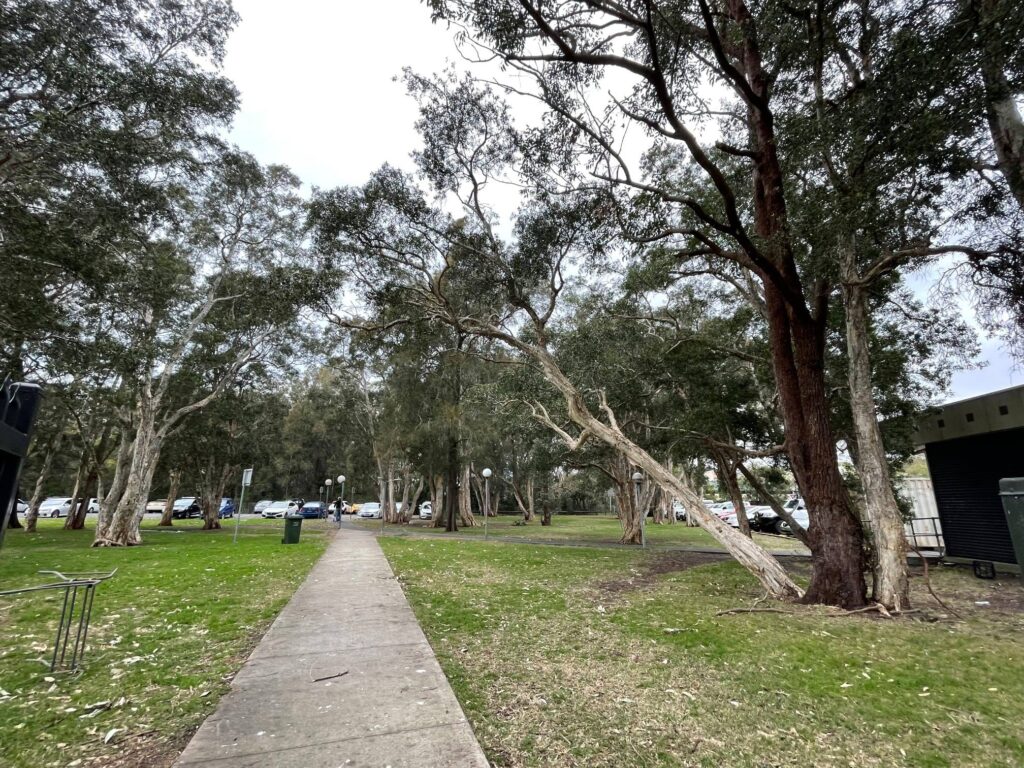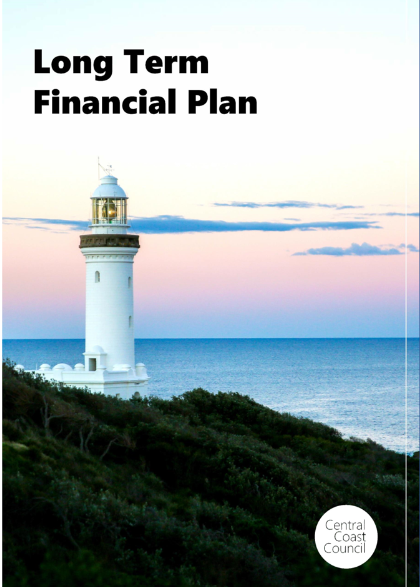The 13 community groups fighting a three-year battle to stop Central Coast Council from reclassifying and selling a public reserve at Woy Woy have been victorious.

By Jacquelene Pearson
The community reserve at Austin Butler AC in the middle of Woy Woy town centre will remain in public ownership after Central Coast Council Administrator, Rik Hart, resolved to adopt a staff resolution to take no further action toward the reclassification and sale of the land at the November 28 Council meeting.
In speaking to the agenda item, Dr Alice Howe, the council’s Director of Environment and Planning, said half of the vegetated reserve had been earmarked for sale for the “purpose of improving safety”.
She also noted that the neighbouring Peninsula Plaza shopping centre had withdrawn its offer to purchase the land, which is flood-prone, classified as community land and zoned RE1 for community recreation.
Dr Howe also noted that a typographical error had been made in the staff report regarding the latest community consultation on the issue. “The graph is correct,” she said, proclaiming that meant there was no clear majority in favour of or against the sale of the land based on a telephone survey conducted by Micromex.
She said a survey conducted by Peninsula Plaza with 670 respondents showed that 62% were in favour of the sale. However, to note the range of community feedback, Dr Howe said the recommendation from council staff was that “no further action be taken to progress the sale”.
Addressing the meeting after Dr Howe, Administrator Hart said: “Council has conducted varied and pretty through community consultation in response to my minute. Two council run surveys have shown varying results which is to be expected.”
He said of over 1500 people who went to the council’s your voice our coast website to complete a survey, 92% were in favour of keeping the Austin Butler trees and not selling the land.
He said he believed council’s phone-based “independently run survey” represented a “better cross section” of the community than “those from the engaged campaign group”.
He said the additional rounds of community consultation he ordered via an Administrator’s Minute at the September meeting was “to understand what the whole community feels about the site, not just those who are actively engaged.”
He added that councils were, under the Local Government Act, required to make decisions based on the needs of the whole community and “not just those people who have written to you… governing for everybody not just the noisy majority”.
“It is my opinion that the majority of the community want retention [of the reserve],” Mr Hart finally noted before resolving to adopt the staff resolution with an additional resolution to note the receipt of the survey conducted by the Peninsula Plaza shopping centre.
When questioned by The Point about whether Mr Hart would have been more likely to go ahead with the sale had Peninsula Plaza not withdrawn its offer to purchase the land, he said, “That had nothing to do with it to be honest. The decision was made when one looked at the evidence of the surveys. Two meetings ago I said I wanted more information about what the community thought.”
He said the choice he gave the community was between selling the land and using the proceeds of the sale for the “greening of the Peninsula with 8000 trees” or for the “community to retain ownership” of the reserve with its 40-odd mature native trees.
“As I said last night it was a really interesting result. You do get what I will call a passionate group of people who want to do something. Councils have to think long and hard about the true sentiment of what the community thinks,” he said.
Of the phone-based survey done by Micromex, Mr Hart said “you actually had via a very thin margin in the degree of statistical relevance, very tight, more people wanting to go down the avenue of selling the land and greening the peninsula.”
He said, however, that “1500 passionate and noisy people” made the effort to contact council with their views.
However, he conceded that, “The evidence wasn’t strong enough for me to say the sale should go ahead.”
The Point also asked Mr Hart if, at the time he was Acting CEO and involved in the selection of assets for sale in late 2020, staff had shown him emails between a local development consultant and former council Director Mike Dowling.
As previously reported by The Point, those emails, attained via GIPA, revealed a determined effort by the consultant, on behalf of their client, Peninsula Plaza, to push council to reclassify and sell the land.
They also revealed that council had already investigated whether such a reclassification and sale would be appropriate and concluded that it would not because the land had been dedicated to the community for recreation and was flood-prone.
“No I didn’t see any of those emails. As I said my decision was based around the evidence. I also got an advisory note from the staff that looked at the survey that was done by Peninsula Plaza.”
As for the future of the reserve, Mr Hart says, “Nothing happens. Bare in mind the original intent was for the council to consider reclassification of that land because we received a proposal from the plaza to buy it. We received a bid for it and it is very simple.
“There was nothing more or less to it than that.”
Mark Ellis, speaking on behalf of the Australian Conservation Foundation Central Coast Community Group, one of the 13 groups who campaigned to save the reserve, said Mr Hart had always said he would be guided by the community.
“The community has spoken one more time and sai a resounding no to reclassification and sale,” Ellis said.
He noted that “with some imagination” Peninsula Plaza could increase its footprint, parking, shops “and
even some shop top housing” on their existing site without expanding onto the neighbouring reserve and sacrificing the trees.
Ellis called for a “Master Plan for the Peninsula that includes green infrastructure planning, greening and ride and go public transport.
“Ceasing the proposed sale process provides a clear presentation of council’s respect to the community…
This process has clearly demonstrated the strength of the community to aspire to something better.”
Community activist, Joy Cooper, said that she had been speaking at council meetings about the asset selloff program since 2020 and it had been many months since Mr Hart had declared the council’s financial crisis over.
She said rather than stop selling land, Austin Butler AC had been bundled into a “bulk reclassification”.
Cooper asked if Mr Hart had asked staff for all files in relation to the history of the property before deciding whether it was appropriate for sale.
“Such a scan [of the files] would reveal the community has been telling you consistently for three years it is flood prone and unsuitable for development.
“What is easy to understand is the staff recommendation, clear and unequivocal. I have attended every council meeting since you took over as administrator. You did have a hands on role in the asset sales and rarely have you found it necessarily to resolve contrary to staff recommendations,” she said.
The 13 community groups involved in the campaign to save Austin Butler are planning a PICNIC IN THE PARK for Saturday, December 9, under the trees from 10am to celebrate their victory.
Enjoy this article? Explore more of our ESG News below:
Environmental Justice News | Social Justice News | Good Governance News | Climate Change News | ESG Investing News | Housing News | Renewable Energy News | Breaking Central Coast News
Prefer your news delivered to your email inbox?
Click here to subscribe to our free weekly newsletter to stay up-to-date with local, national and global ESG news.


